- Learning time
- 30 minutes
- First play time
- 60 minutes
7 Wonders
Designed by: Antoine Bauza
In 7 Wonders each player is developing their ancient civilisation, including the ‘wonder’ of the game’s title – The Hanging Gardens of Babylon, the Pyramids of Giza and so on.
The play is straightforward – in each of three rounds players start with seven cards each, and the cards all represent buildings. They play a card face-down, and everybody reveals their cards simultaneously whereupon the buildings on them are “built”. Some buildings are free to build, whereas many (especially later in the game) require resources, which will either be supplied by previously-built buildings, which show the resource they provide, from wood and bricks to cloth and glass – or purchased from neighbouring players. Cards can also be ‘burned’ to raise money, or used to help build your ‘Wonder’ (which in turn gives you bonuses either during or at the end of the game) in which case the building is not ‘built’ but placed face-down under your individual player board showing the wonder in question.
Following each card played, each player’s hand is passed on to a neighbour (clockwise in round one, counter-clockwise in round two and then clockwise again in the final round). Play continues until every player has 2 cards left, from which they ‘build’ one and discard the other.
The buildings come in various colours – brown and grey are resource buildings that help you build more valuable buildings. Yellow are utility buildings with various purposes and abilities, blue are showy, aesthetic buildings that score points but have no other purpose, green are sciences, red are military and purple are ‘guilds‘ that can be very valuable in the end-game scoring and only appear in the last round.
It’s also possible to ‘chain’ buildings – certain buildings will let you build a subsequent building for free – but only if it comes into your hand and isn’t built by another player!
7 Wonders can be baffling on a first play but once everyone is up to speed it is a fast-moving and canny game where the winner is often the player who doesn’t “specialise” in a particular colour but creates a spread of scoring in all the buildings. There is a nice two-player version as well as two or three expansions for fans.
The guru's verdict

-
Take That!
Take That!
Playing or discarding a card that would have helped a neighbour doesn't feel particularly spiteful. However the military cards are all about outscoring direct neighbours.
-
Fidget Factor!
Fidget Factor!
Negligible. Every turn involves every player, so the only downtime is when everybody has decided what card to play except for that one player who can't make up their mind!
-
Brain Burn!
Brain Burn!
See above. Playing as a family shouldn't see too much brain-burning but a bunch of adults might see the odd pause as somebody tries to make the choice between a sure-fire 4 points from a blue-building or gambling on a military building that might backfire.
-
Again Again!
Again Again!
After the initial bump of 'first play' 7 Wonders is a very moreish game that is usually finished in well under an hour.

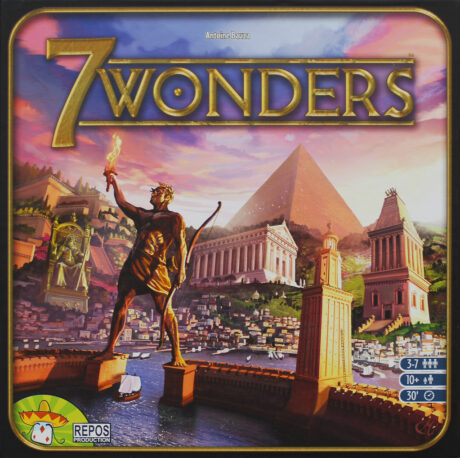
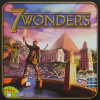
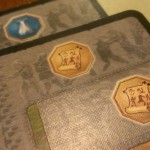
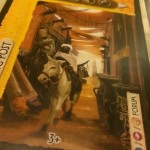
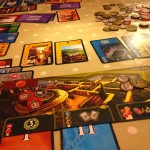
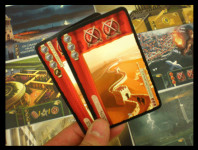
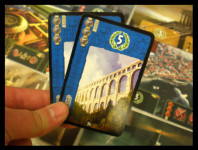
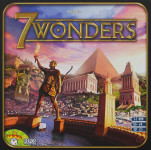


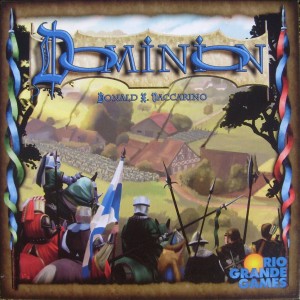
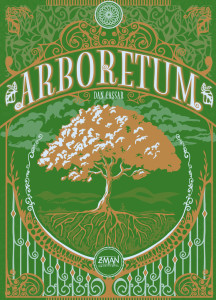

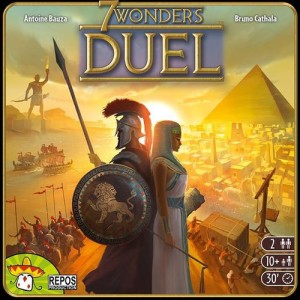
Sam says
There are easier games to learn (or teach) but it really is worth persisting, because once you've cracked it you can knock out a game of 7 Wonders in under half an hour, and every game is different. Personally I don't think it needs expansions (there are several), but then I'm not a fan of game expansions generally. 7 Wonders Duel is a good 2-player version, but the original offers a 2-player variant as well.